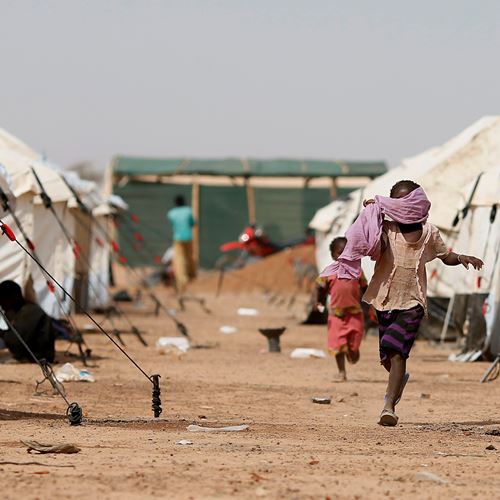
Yann
Faivre
Executive Director West & North Africa and Latin America
In Mali, DRC has been responding to humanitarian needs and working on armed violence reduction since 2014. DRC is working with conflict- and displacement-affected communities, refugees, and migrants to defend their rights, improve their access to basic services and protection, preserve their food security, address local conflict dynamics, strengthen social cohesion and support the resilience of local communities to armed violence.

Source: | DRC Foresight
EDPs: Refugees under UNHCR’s mandate
IDPs: Internally displaced persons
Asylum seekers: People whose claims for refugee status have not yet been determined
Stateless: People not considered as nationals by any State
HST: People living in Host Communities
OIP: Others in need of International Protection
OOC: Others of Concern
DRC forecasts are based on a machine learning tool that has been developed to predict forced displacement (IDPs, refugees and asylum seekers) at the national level 1-3 years into the future.
The situation in Mali is evolving quickly and the population’s needs are growing steadily. DRC, along with its partners, ensures those affected by the conflict can continue their lives in safety and dignity.
DRC operates in Bamako, central, and northern Mali, with a coordination office in Bamako. DRC implements emergency projects along with medium- and long-term projects and collaborates with a variety of actors (national and international NGOs, state actors, communities). Our projects aim at strengthening the protective environment of communities, social cohesion and armed violence reduction, access to basic services, and livelihoods in a sustainable and conflict-sensitive manner.
DRC responds to urgent protection needs and reinforces the protection environment of communities affected by conflict. Individual assistance, child protection, psychosocial support, referrals, and protection monitoring represent the daily activities of DRC teams across the country. DRC has mobile emergency protection teams to support affected communities. With regards to protection of children, DRC works with children on the move (migrants, unaccompanied children/separated children) and children associated with armed forces and armed groups.
DRC provides comprehensive peacebuilding and disarmament responses to prevent conflict and mitigate existing conflicts. DRC is among the leading actors in the fields of Humanitarian Mine Action, Small Arms and Light Weapons Threats Mitigation, Social Cohesion Strengthening, Community Violence Prevention and Reduction, Early Warning and Early Actions aimed at preventing conflicts and armed violence. DRC is leading the Peacebuilding Actors Forum and is developing coordination mechanisms to enable pertinent exchanges between peace actors.
DRC works to strengthen the economic, food and nutritional resilience of populations. In particular, DRC applies a graduation approach to enable people to gradually emerge from poverty by supporting them in their professional integration project and by offering them safety nets to resist shocks. In addition, DRC is providing emergency electronic cash assistance to households affected by the current food security crisis in the North.

Yann
Faivre
Executive Director West & North Africa and Latin America
Jean
Doursounian
Country Director